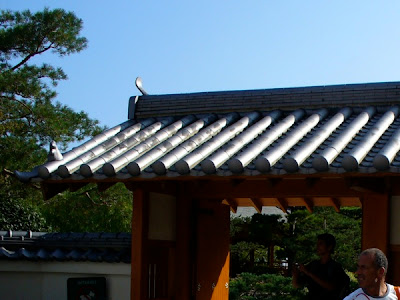Make them appreciate the beauty of their clothes. (Ch.80)
The face is the place where the contact between Tao and a hologram takes place.
Zen Master Dogen puts it this way:
"Face-giving [Menju 面授/ Face (to face) transmission] is receiving and giving at the face."
面授は面処の受授なり
(Menju 面授, «Shobogenzo 正法眼蔵»)
Your face is the interface between Tao and a hologram.
That's why you cannot see the face.
You can see only an interpretation of it, such as your reflection on the mirror or the reputation.
Since it is the important interface, let's keep it clean.
Therefore, Dogen painstakingly explains how to wash the face and other body parts. (Senjo 洗浄, Senmen 洗面; «Shobogenzo 正法眼蔵»)
Your body is a manifestation of Tao (=Love, =Buddha).
By washing it, you can emit Love (=Tao, =Buddha).
That's one basic way to keep Tao's energy circulating.
Your clothes are an extension of your face.
Forget someone else's criteria.
Please appreciate your beautiful clothes, your beautiful body, and your beautiful face.
[Note]
The titles of the two chapters in Shobogenzo above, that is to say, Japanese words "Senjo 洗浄" and "Senmen 洗面", signify "wash" and "washing the face" respectively.
«Related Articles»
-Small country 80-1
-"110 vessels" 80-2
-Don't travel 80-3
-Boats and Cars 80-4
-Armor and Arms 80-5
-Tie the rope 80-6
-Hunger and Food 80-7
-Face transmission / Menju / Beauty 80-8
-Out-Tao (Heresy) Seniya / Gedo Senni / Settled 80-9
-Enjoy your customs 80-10
-Neighbors 80-11
-Moonlight and Dewdrops / Dogs and Roosters 80-12
-Life without intervention 80-13
-Tao by Matsumoto / Tao Te Ching / Chapter 80
Lao Tzu answers your question!
☞«Recommended Books 5» When you travel in an unknown territory, you might be happy to have a guide. If he is good, your journey will be safe and fun. The best Japanese guide to Zen in English is, without question, Daisetz Teitaro Suzuki. It is a pity that this learned scholar did not translate Dogen's «Shobogenzo» into English. He may have had thousands of reasons not to do it, and his decision was wise. Still, many Zen learners in the non-Japanese speaking world cannot help imagining how enormous his contribution to the humanity would be if he had done it. This excellent guide with a hearty sense of humor wrote a summary of Zen Master Ikkyu's play «Yama Uba» in his «Zen and Japanese Culture














